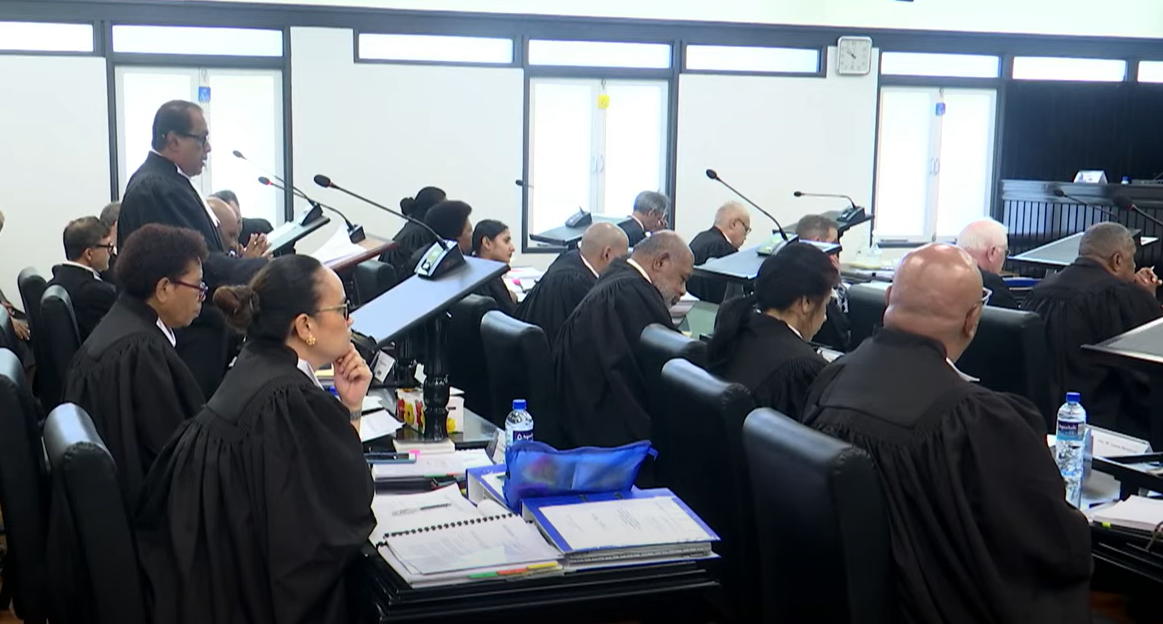The Fiji Law Society has urged the Supreme Court to consider the totality of Fiji’s democratic experience under the 2013 Constitution and not consider isolated complaints when deciding the legality of proposed constitutional amendments.
FLS lawyer Arthur Moses presented a detailed timeline of elections, legislation, and institutional continuity to demonstrate that the 2013 Constitution has not only functioned but has been accepted and utilised by the Fijian people for more than a decade.
“There have been three elections, in 2014, 2018, and 2022 with voter turnout of 84.6%, 71.9%, and 68.3%,” he said.
“That shows the majority of the people of Fiji are participating in the political process established by the 2013 Constitution.”
He noted that three different parliaments have sat under the 2013 Constitution and have collectively passed 403 Acts of Parliament.
He also highlighted that three presidents have been appointed under Section 84, replacing the former selection method used under the 1997 Constitution where the Great Council of Chiefs named the President.
“In September 2023, when the President was overseas, the Chief Justice lawfully assumed the role of Acting President, a change enabled by the 2013 Constitution,” he said.
“That wouldn’t have been possible under the 1997 Constitution.”
Mr Moses added that the judiciary had functioned consistently under the new framework, with judges, including those currently presiding, having taken their oaths of office under the 2013 Constitution.



